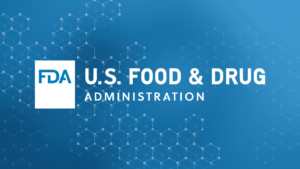SILVER SPRING, MD – December 8, 2023 – On December 8th, the U.S. Food and Drug Administration (FDA) approved 2 gene therapies for the treatment of sickle cell disease in patients 12 years and older. Each treatment is approved for patients with a history of recurrent episodes of blocked blood vessels from misshapen red blood cells. The gene therapy techniques are Casgevy and Lyfgenia. These are the first approved treatments using a genome editing system in the U.S. The only FDA-approved treatments for sickle cell disease until now include a bone marrow or stem cell transplant from donors, a medicine that can prevent the red blood cells from becoming misshapen, and a medicine that can prevent misshapen cells from adhering to blood vessels.
Sickle cell disease is an inherited blood disorder that affects about 100 thousand Americans and 20 million people in the world. Most people with sickle cell disease in the U.S. are African Americans. The disease affects red blood cells that become misshapen (resembling a sickle) and block blood flow to specific areas of the body. This can result in severe painful crises, infection, loss of vision, or a stroke. The misshapen red blood cells can die early, resulting in severe anemia with symptoms of feeling tired.
With each technique, the patient’s blood stem cells are removed and modified by the CRISPR gene editing technique (which has been derived from naturally occurring gene editing systems found in bacteria). Once the stem cells are collected, the remainder of the bone marrow cells are removed with high-dose chemotherapy. Then the modified stem cells are transfused back to the patient. They attach and multiply within the bone marrow. The genetically modified stem cells produce red blood cells that keep their normal shape.
The FDA reported a study of 31 patients with at least 2 episodes of severe blood flow crises a year for 2 consecutive years prior to entering Casgeny treatment. After 24 months of follow-up, over 90% of the patients had at least 12 consecutive months without a severe blood flow crisis.
The FDA reported a study of 32 patients, ages 12 to 50, with a history of severe blood flow crises prior to entering Lyfgenia treatment. After 24 months of follow-up, almost 90% of the patients had no severe blood flow crisis between 6 and 18 months after treatment.
As quoted in the December 8th FDA news release, Peter Marks, M.D., Ph.D., director of the FDA’s Center for Biologics Evaluation and Research said, “These approvals represent an important medical advance with the use of innovative cell-based gene therapies to target potentially devastating diseases and improve public health. Today’s actions follow rigorous evaluations of the scientific and clinical data needed to support approval, reflecting the FDA’s commitment to facilitating development of safe and effective treatments for conditions with severe impacts on human health.”
Each of the gene therapy treatments enable patients to use their own blood stem cells rather than have a transfusion of donor cells, in theory, reducing the risk of complications and failure.
Listen to the full report below:
Contact: Dr. Dick Needleman, Health reporter, 103.3 AshevilleFM, [email protected]
More Posts for Show: Asheville FM News Hour
